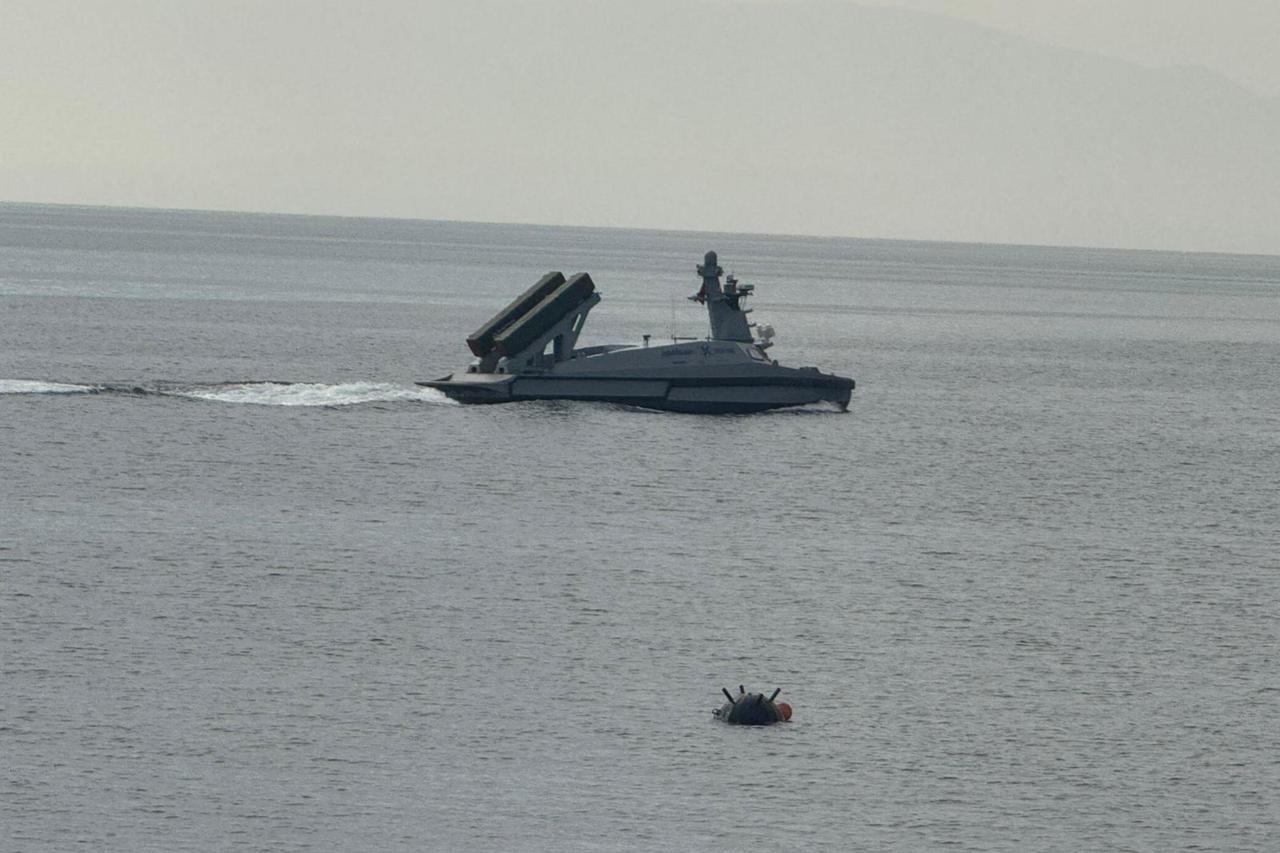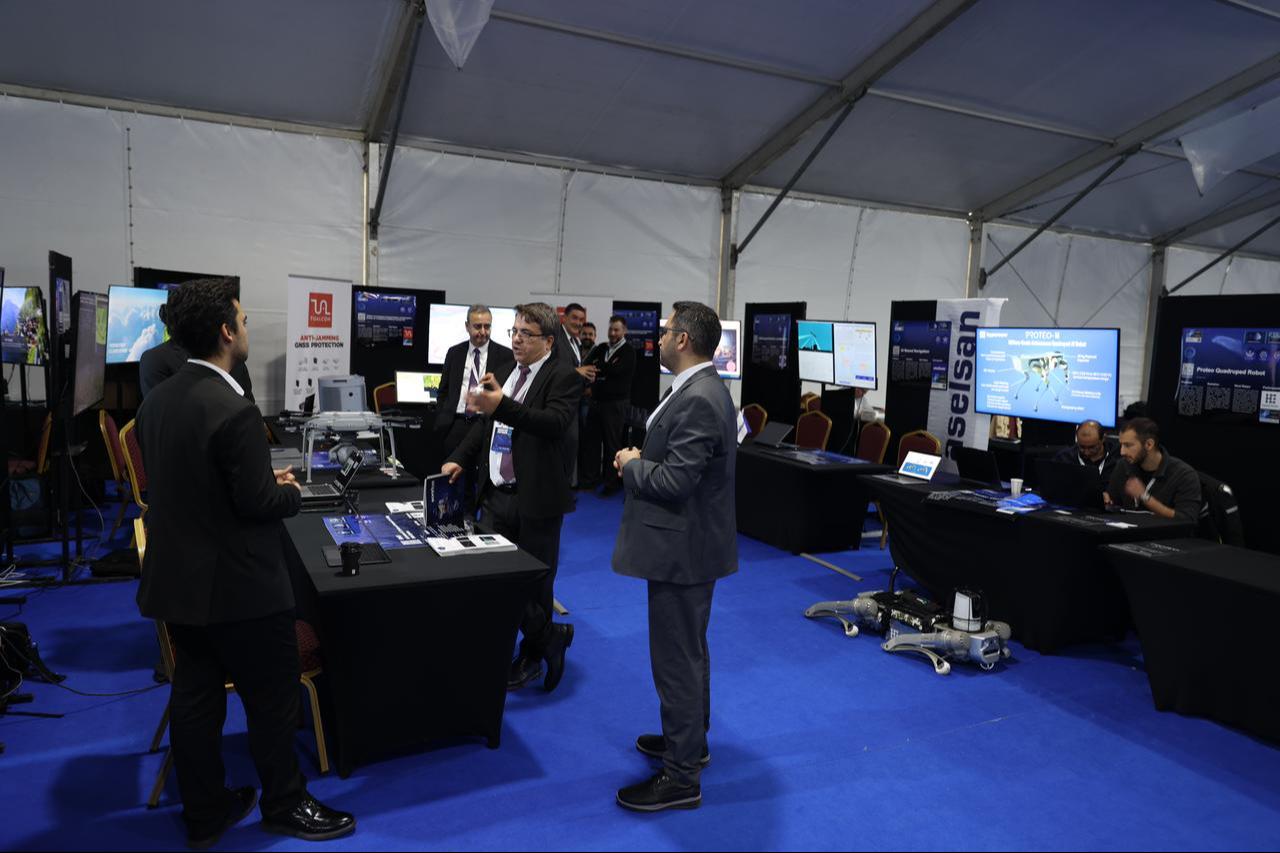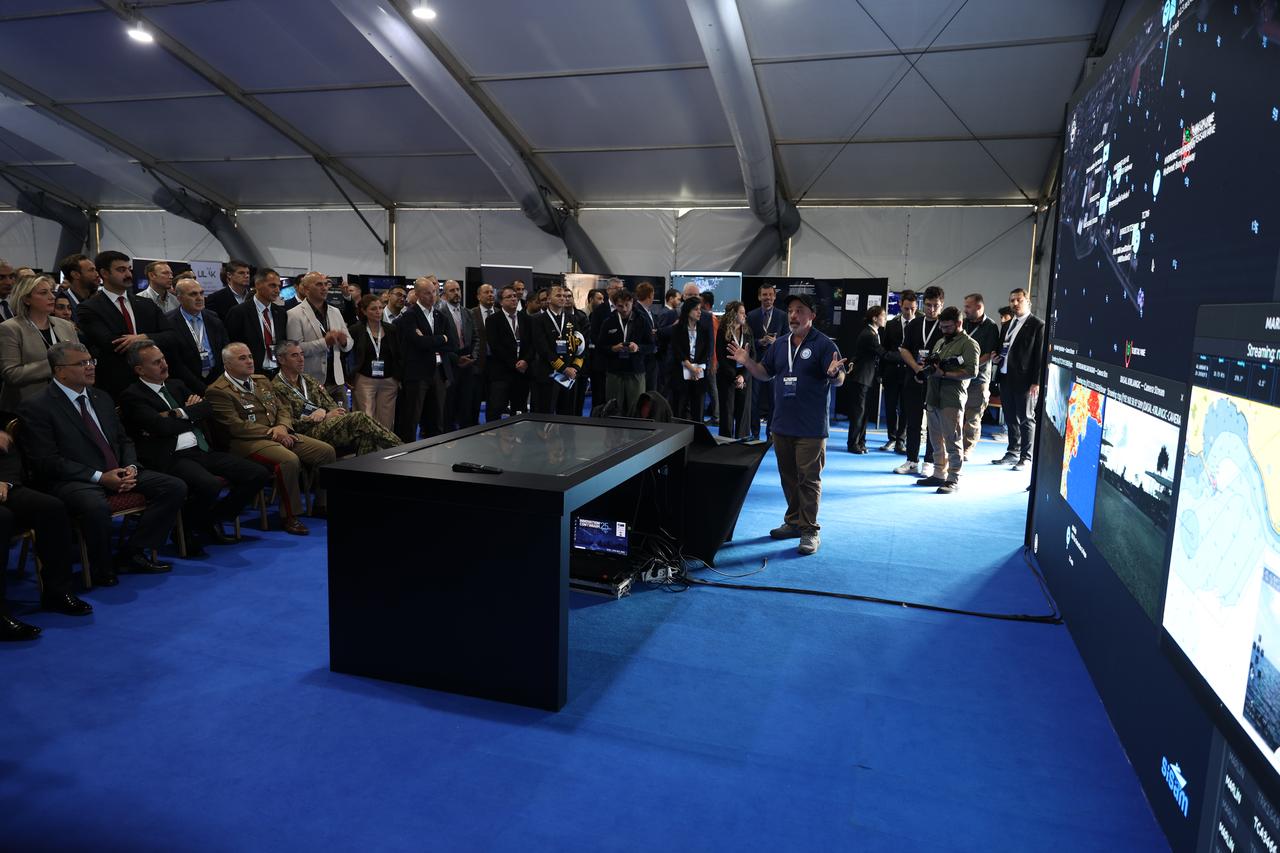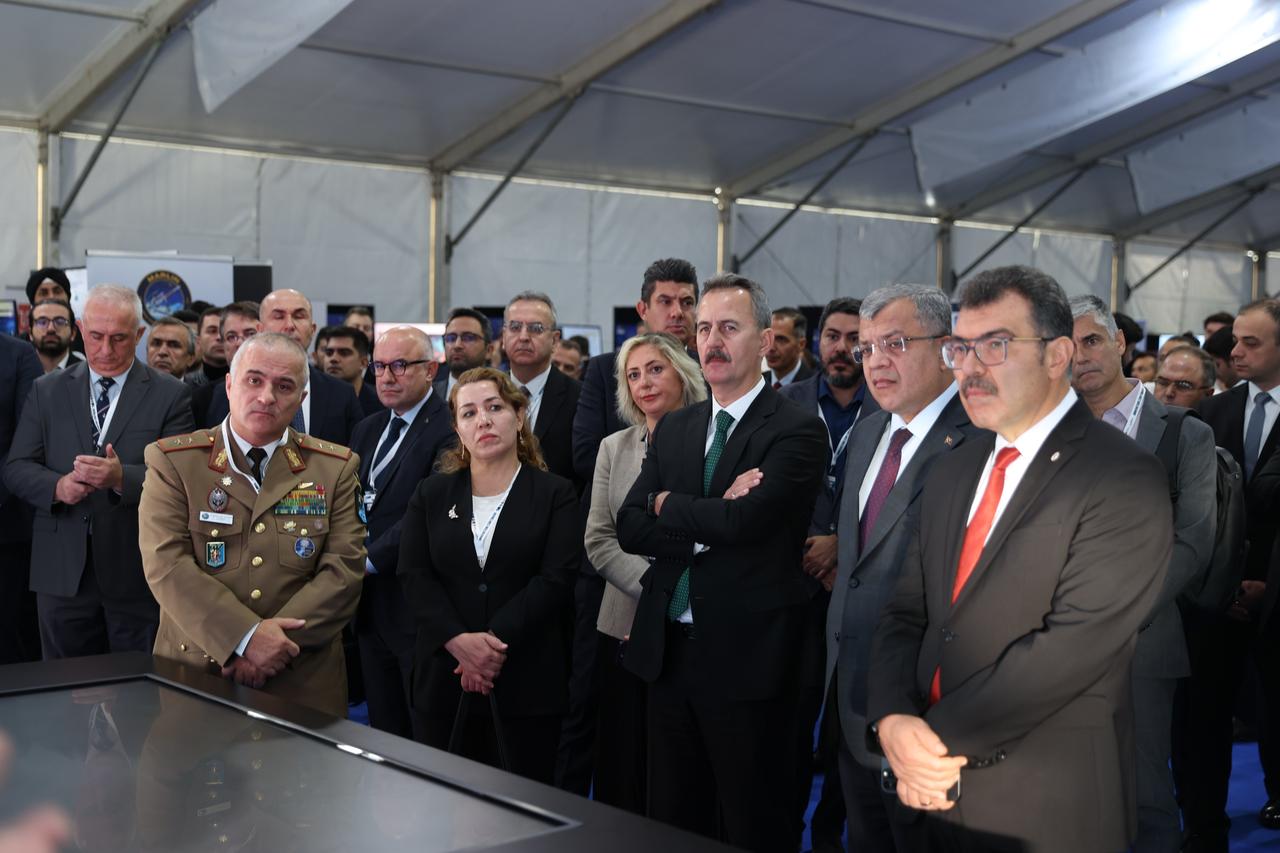
Thirteen Turkish defense firms showcased cutting-edge technologies in unmanned systems, autonomous vehicles, and quantum communications at NATO’s premier innovation exercise hosted by Türkiye.
The final phase of the four-stage NATO Innovation Continuum, led by NATO Allied Transformation Command, culminated in Istanbul with 50 organizations from multiple nations collaborating to develop innovative solutions to current alliance challenges.
The exercise, coordinated by the Presidency of Defense Industries (SSB) and held at Istanbul Technical University's Maritime Faculty, brought together academia, industry and government agencies to accelerate the adoption of breakthrough technologies emerging across the alliance.

Turkish firms, including Aselsan, Havelsan, Tualcom, Meteksan Savunma, DASAL, TUBITAK SAGE, Sefine Shipyard, STM, Sonitus, ULAK Communications, Hyperever, Qubitrium and Koc Defense, participated.
Companies focused particularly on unmanned platforms, payloads that enhance performance and supporting infrastructure.
In one scenario, teams worked to detect and neutralize drifting sea mines using unmanned systems. Aselsan and Sefine Shipyard's MARLIN armed unmanned surface vehicle conducted patrol and reconnaissance operations. "Following detection of suspicious objects, verification was conducted with assistance from drones produced by DASAL and STM."
Imagery from the surface platform and drone was transmitted in real time to a command center. Images and field positions were tracked live through a digital display developed by Sefine Shipyard's Strategic and Unmanned Systems Research Center. After mine detection was complete, STM's kamikaze drone was dispatched to destroy the mine.
The scenario concluded successfully when the kamikaze drone struck its target.
In the critical submarine infrastructure protection scenario, Hyperever's four-legged robot and Sonitus' autonomous underwater vehicle supported reconnaissance and surveillance operations. Qubitrium participated in quantum-focused projects.
SSB Chairman Haluk Gorgun, speaking after observing the exercise, said Türkiye is engaged in expanding interaction and activities with NATO.
"Türkiye demonstrates diversity ranging from startups to integrator firms through technological development, creating products that have proven themselves," Gorgun said, adding, "These products are being exported and reliability and effectiveness are proven every day."
He emphasized export reach: "We export defense industry products to 185 countries. Over 2,000 defense industry firms are exporting. We emphasized that a significant portion of last year's export figures went to NATO member states."
Gorgun outlined the strategy: "Aware that technologies and products we develop within a spirit of alliance could be used more widely and adopted by NATO members, we first established the NATO Relations Directorate under the Defense Industries Presidency. Immediately afterward, we had a series of activities. We particularly invited NATO's Procurement Director to Türkiye and brought together our defense industry firms engaged in exports. It was a very successful event. Interactions increased. Recognition of companies in NATO increased and tender bidding processes accelerated."
He noted the significance of the innovation exercise: "In the Multi-Domain Operations activity, one of NATO's 'diamond' events and one of their most important events, our firms participated. We organized this activity with NATO ACT, the NATO unit working on the alliance's future technologies, in Türkiye and it went very successfully; they were impressed."

Gorgun explained the rationale for hosting: "By hosting these NATO events, we are trying to increase our visibility. After the first phase of this event, we also conducted the fourth and final phase in Türkiye."
"This was an event aimed at enabling companies to work together as teams to complete certain tasks to rapidly produce new technologies targeted by NATO, to increase interoperability," he noted.
He described the challenges assigned: "Several current problems were given to teams as targets. These included detecting and neutralizing floating mines on the sea surface, secure information transfer using quantum technologies, and eliminating unmanned aerial threats through multiple different methods. Solutions were sought for these challenges."

Gorgun emphasized the importance of equipment compatibility: "Products must work with each other, be ready for use according to established standards and create infrastructure that can work together."
"In this exercise, multiple companies brought multiple sensors together and used them effectively," he noted.
He highlighted Turkish firms' agility: "Turkish defense industry companies are very nimble. There is a working discipline developed over many years as a result of close coordination between the Defense Industries Presidency and the armed forces and end users, where field requirements are rapidly converted to products."
Gorgun highlighted the growing visibility of Turkish firms, noting that 13 companies took part in the event and effectively showcased their contributions and achievements. He expressed confidence that the increased exposure would lead to new export opportunities and greater involvement in future projects.